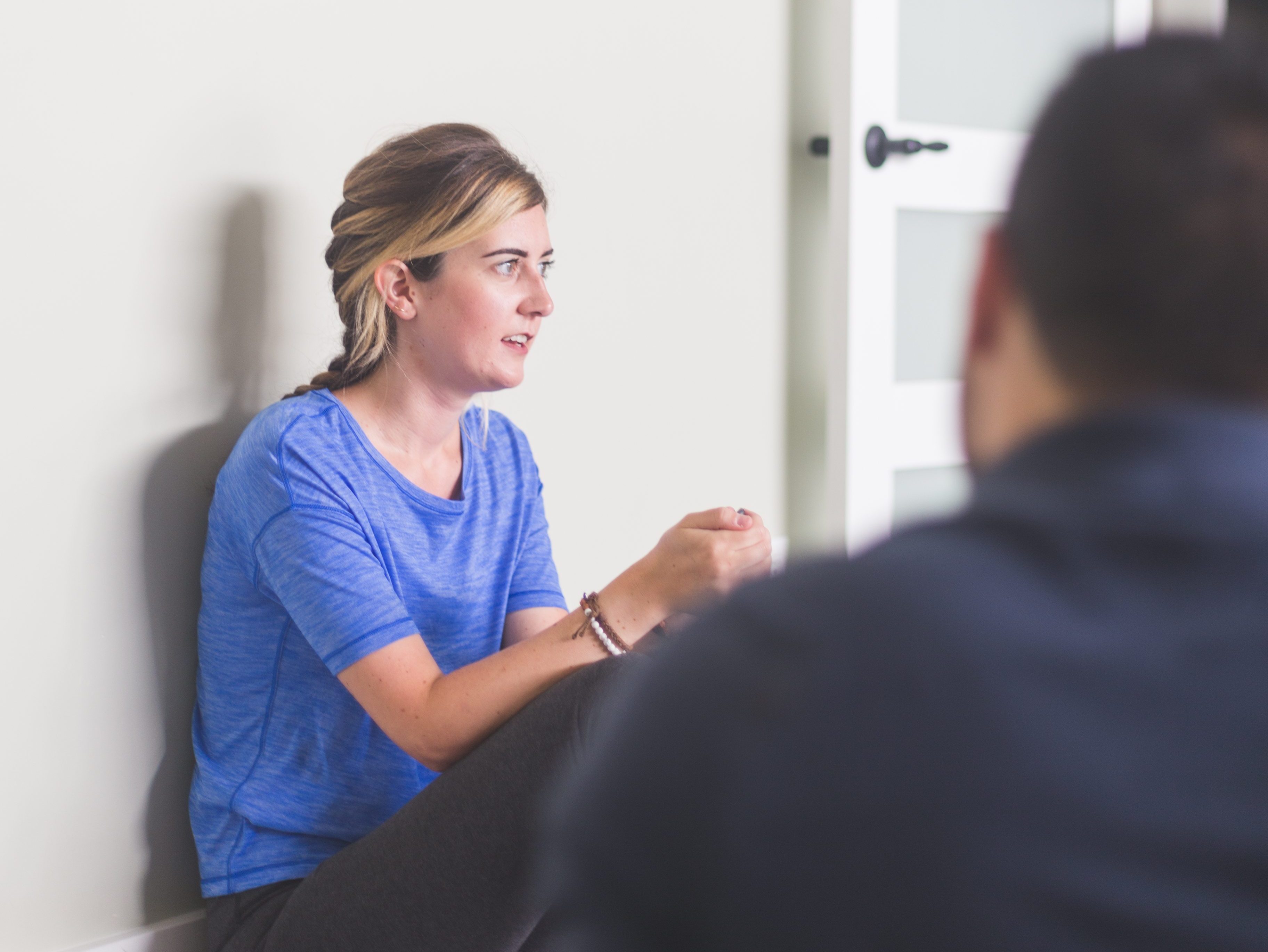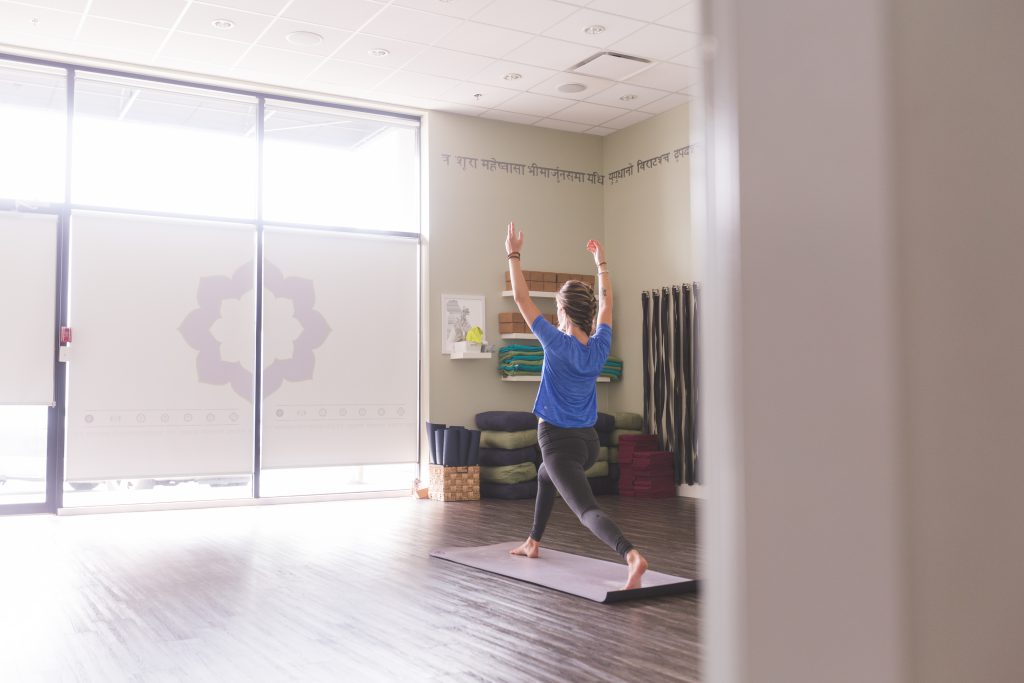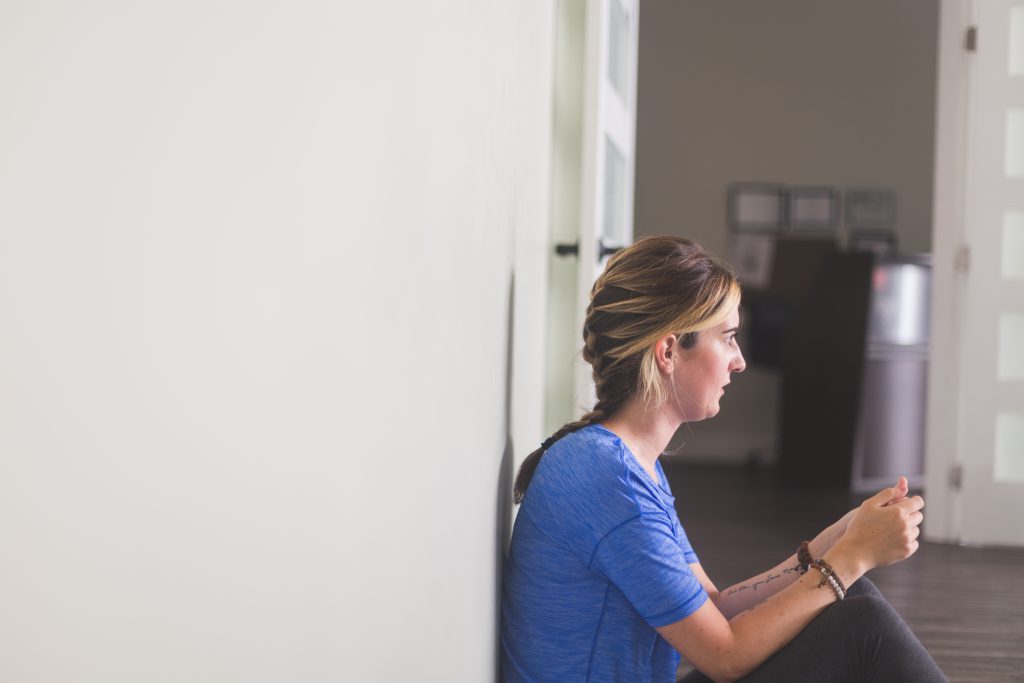Lindsey’s Story
PARALLEL YOGA HAS CHANGED SIGNIFICANTLY OVER THE LAST SIX YEARS. Although it still occupies the same location in East Abbotsford where it first opened, the studio is much bigger today: It extends over two whole storefronts and even sells its own in-house brand of yoga apparel.
But despite this growth, some things remain the same. The studio’s atmosphere is still warm and familiar, and if you were to walk in at any time, there’s still a good chance you’ll see Lindsey holding a pose in her favorite corner of the studio.
“This is my safe place,” Lindsey says as she rolls her mat onto the floor. “It’s like a second home to me. Over the last six years, I have come to know the instructors and staff really well, and no matter the state I’m in when I walk through that door, I always feel loved and accepted.”
Many people may take that kind of acceptance for granted, but for someone who spent most of her life silently struggling with anxiety and depression, it’s absolutely priceless.
“This place saved my life,” Lindsey says as she takes a seat on the studio floor. And she really means it.

Strength in numbers
The first time Lindsey walked into the studio, she was 21 years old and had never done yoga before.
“Because of my anxiety, it has always been hard for me to face new experiences, so when my mom dragged me here on opening day six years ago I was super resistant to come,” she remembers.
Despite that original discomfort, Lindsey faced this challenge, as she would most, head on. She continued going to the studio on her own, and despite feeling uncomfortable at first, she eventually began enjoying the classes. After a few months, she even started building close relationships with her instructors.
“The way it makes my body feel and in turn the way it makes my mind feel is like nothing I could ever describe. Yoga has allowed me to connect with my body and my mind and create a greater sense of acceptance towards myself.”
Six years and countless vinyasas later, these bonds have solidified. Today, Lindsey refers to the staff here as her “yoga family” and has become comfortable enough to reach out to them when she feels her mental health deteriorating.
“There have been a few times when I was in very dark places, and the people here saved my life,” Lindsey remembers.
That’s why, week after week, year after year, she continues coming back to the studio.
“Sometimes I just come in to see the people because I know they’re going to accept me and make me feel better,” she says. “They really became the family I never knew I needed.”

Yoga as a path to wellness
While the relationships that Lindsey built at the studio have played an incredibly important role in her mental health journey, she also credits a lot of her current wellness to yoga itself.
“The way it makes my body feel and in turn the way it makes my mind feel is like nothing I could ever describe,” she says. “Yoga has allowed me to connect with my body and my mind and create a greater sense of acceptance towards myself.”
A growing body of scientific evidence shows that this effect is not unique to Lindsey.
“Yoga has taught me so much about my breath, and about how it impacts my health and my functioning. It’s become an extremely useful tool to manage my anxiety.”
According to studies reviewed by Harvard Medical School, practicing yoga can improve the overall well-being of people struggling with their mental health and can dramatically reduce symptoms of depression and anxiety.
The review also states that yoga can help deal with stress and post-traumatic stress disorder by reducing the quantity of cortisol – a hormone linked to stress and depression – in the body.
“For many patients dealing with depression, anxiety, or stress, yoga may be a very appealing way to better manage symptoms,” reads the review. “Indeed, the scientific study of yoga demonstrates that mental and physical health are not just closely allied, but are essentially equivalent.”
Lindsey has experienced this first hand. Ever since she started doing yoga, she has begun to feel more comfortable with her own body and mind and has learned useful techniques that help her to better deal with symptoms of anxiety and depression.
“Yoga has taught me so much about my breath, and about how it impacts my health and my functioning,” she says. “It’s become an extremely useful tool to manage my anxiety.”
“Because of my anxiety, it has always been hard for me to face new experiences, so when my mom dragged me here on opening day six years ago I was super resistant to come”
Spreading the word
Just like the studio she calls home, Lindsey has undergone a formidable change in the past six years.
While she still struggles with her mental health from time to time, she has gained the strength needed to advocate for herself — and for others. Today, she’s committed to making mental health more visible and supports a number of young people in her roles as clinical counsellor and youth care worker.

“Both in my work and in my personal life, I live by the statement: Be who you needed when you were younger. When I was younger, I dealt with my mental health alone and in silence. I didn’t even know what I was experiencing. So now I just really try to be there for other people who are struggling in similar ways.”
Lindsey does this through her work in schools and organizations in Abbotsford and across the Fraser Valley, where she works one-on-one supporting young people who, like her, struggle with mental health issues.
“I always tell young people that they are not alone. I never want anyone to struggle in silence, the way that I did for so long. Being open about mental health experiences is often more than half the battle,” she says.
And for that, you need to feel safe and accepted.
“This place did that for me. It has helped me grow and has allowed me to share my experience and express myself,” she says about the studio. “It’s different for everyone, but for me, opening up to others about my story has made me more confident, a confidence that has only developed since learning to accept myself through yoga.”
This story is part of a series aimed at sharing the experiences of young people across BC. As part of Foundry’s goal to work alongside young people, create connections and promote mental health and wellness, we are creating a platform for young people’s stories to be heard.
Article by Peter Mothe. Photography by Connor McCracken.
If you are in crisis, please call 1-800-784-2433.
Find out more about Foundry.